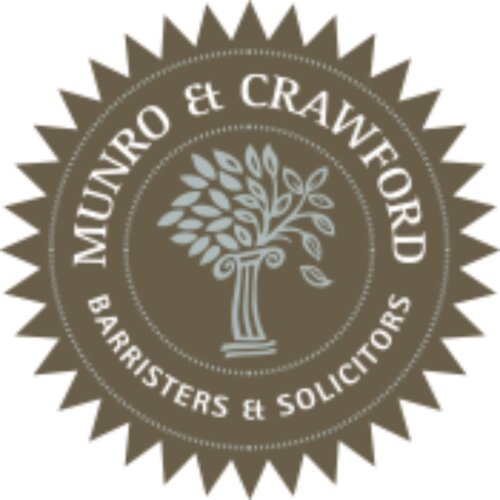Best Guardianship Lawyers in Vancouver
Share your needs with us, get contacted by law firms.
Free. Takes 2 min.
List of the best lawyers in Vancouver, Canada
About Guardianship Law in Vancouver, Canada
Guardianship law in Vancouver addresses legal and personal responsibilities for children (under 19 years old) and incapable adults. When someone becomes a guardian, they have a legal obligation to protect the person's wellbeing, making decisions on their behalf regarding care, medical treatment, education, and financial matters. For incapable adults, a Committee (guardian) may be appointed under the Patients Property Act.
Why You May Need a Lawyer
Applying for guardianship can be a complex process with court applications and documents that may require legal expertise. Legal guidance is crucial in situations such as disputes over guardianship, setting up a trust in conjunction with guardianship, or if the person under guardianship contests the appointment. It can also be beneficial when dealing with the responsibilities and restrictions associated with being a guardian or discussing potential liability issues.
Local Laws Overview
The Family Law Act is primarily responsible for outlining guardianship laws in Vancouver. It states that parents are typically the guardians of their children until they turn 19 years old. Nonetheless, others can be appointed as guardians through an agreement or court order. For adults, the Patients Property Act applies. It empowers the court to declare an adult incapable and appoint one or more persons as their Committee (legal guardian). Each guardianship situation is unique, and the specific duties and limits of the guardian are individualized, based on the needs of the individual being cared for.
Frequently Asked Questions
1. Who can be a guardian?
An individual, corporation, or the Director of Child, Family and Community Service can be appointed as a guardian. For an adult, a spouse, family member, trust company, or the Public Guardian and Trustee can act as a Committee.
2. Can the person under guardianship contest an appointment?
Yes, they can contest it if they believe they can manage their personal, health, or financial matters.
3. How does one become a guardian?
An individual becomes a guardian either by being a parent of a child, agreement, court order, or by being a named guardian of a child in a will.
4. Can a guardian be held liable for decisions they make?
As long as a guardian acts reasonably and in the best interests of the person under guardianship, they should not be held liable for their decisions. Legal advice is crucial to understand potential liability issues.
5. Can multiple people share guardianship?
Yes, multiple people can share guardianship duties. In some cases, it might be beneficial to have more than one guardian, particularly for adult guardianship.
Additional Resources
The British Columbia Ministry of Attorney General provides resources regarding guardianship law. The Public Guardian and Trustee of British Columbia also provides valuable resources and can be appointed as the Committee of last resort by the court. The Legal Services Society's Family Law website is another valuable source of legal information regarding guardianship.
Next Steps
If you require legal assistance in the field of Guardianship in Vancouver, begin by consulting with a family law attorney experienced in guardianship cases. They can assist in understanding the process, requirements, potential challenges and help navigate the court system. Ensure you have key documents handy such as birth certificates, healthcare records, and financial statements. Remember, it is crucial to seek out legal advice to make informed, safe decisions for those under your care.
Lawzana helps you find the best lawyers and law firms in Vancouver through a curated and pre-screened list of qualified legal professionals. Our platform offers rankings and detailed profiles of attorneys and law firms, allowing you to compare based on practice areas, including Guardianship, experience, and client feedback.
Each profile includes a description of the firm's areas of practice, client reviews, team members and partners, year of establishment, spoken languages, office locations, contact information, social media presence, and any published articles or resources. Most firms on our platform speak English and are experienced in both local and international legal matters.
Get a quote from top-rated law firms in Vancouver, Canada — quickly, securely, and without unnecessary hassle.
Disclaimer:
The information provided on this page is for general informational purposes only and does not constitute legal advice. While we strive to ensure the accuracy and relevance of the content, legal information may change over time, and interpretations of the law can vary. You should always consult with a qualified legal professional for advice specific to your situation.
We disclaim all liability for actions taken or not taken based on the content of this page. If you believe any information is incorrect or outdated, please contact us, and we will review and update it where appropriate.













